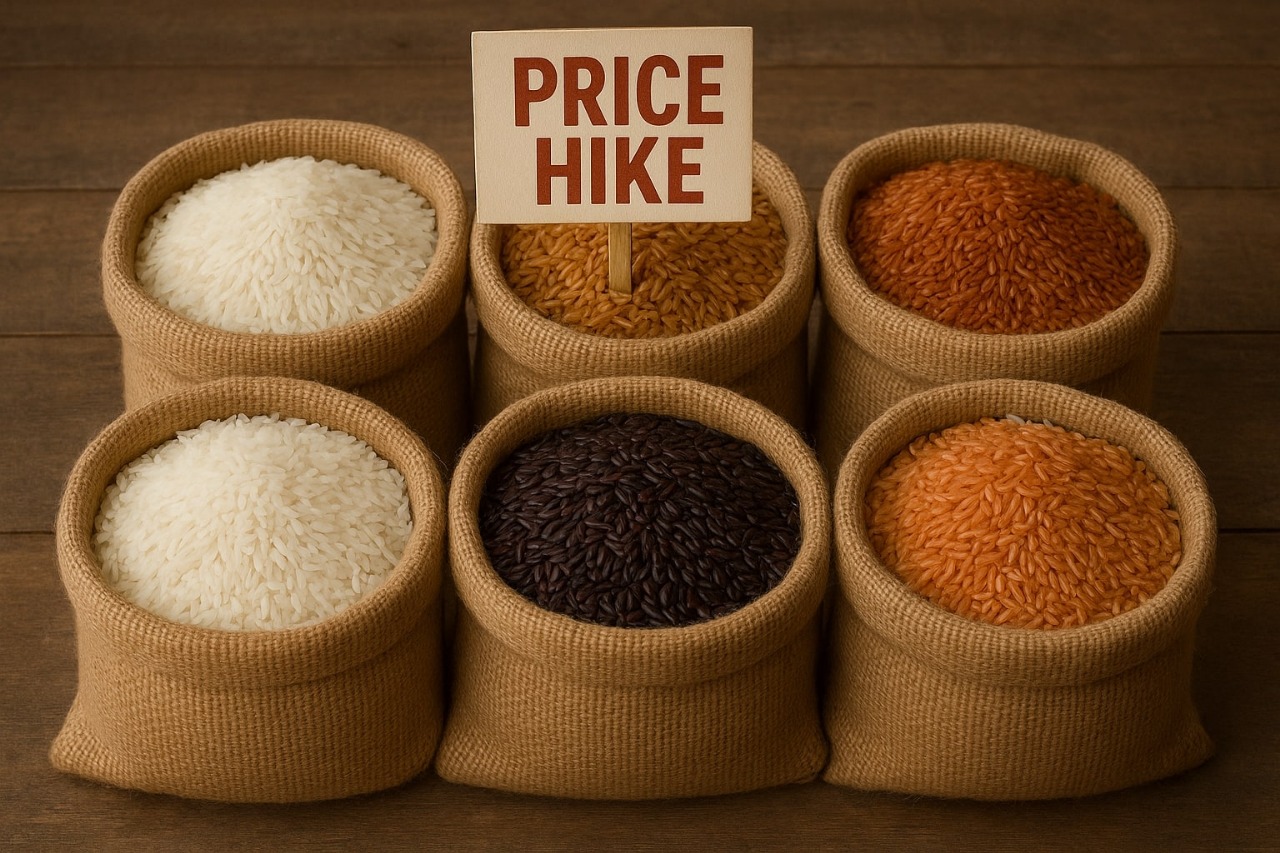Over the past two weeks, rice millers have raised retail and wholesale prices of all types of rice by Tk 3 to Tk8 per kilogramme, depending on quality, taking advantage of inadequate government monitoring.
Although the government claims to be monitoring the market to prevent further price hikes, experts say increased government oversight could control the situation and curb stockpiling.
It is known that when farmers still have paddy in hand or in storage, the price remains low in the market. Once traders gain control, prices are artificially raised. Millers manipulate the market by keeping paddy prices low until farmers lose their possession, after which they raise rice prices.
According to data from the Consumers Association of Bangladesh (CAB), rice prices have increased on average by 15% over the past year. In the last month alone, fine rice prices have increased by 5%, while medium and coarse rice prices have increased by 9%. There are allegations that millers are manipulating the rice market in wholesale depots to create instability.
According to the Department of Agricultural Extension, about 55% of the country’s total rice is produced during the Boro season. When the yield is good, supply increases and market prices fall.
This year, a record 2.14 crore tonnes of rice have been produced during the Boro season. Statistics show that Boro production was 1.95 crore tonnes in FY20, 1.93 crore tonnes in FY21, 2 crore tonnes in FY22, 2.05 crore tonnes in FY23, and 2.1 crore tonnes in FY24.
The government’s marketing agency, the Trading Corporation of Bangladesh (TCB), under the Ministry of Commerce, reported in its price bulletin that over the past month, the prices of Najirshail and Miniket rice have increased by 5.26%, Paijam and Lata by 8.70%, and IRRI and Swarna by 9.52%.
Field investigations revealed even higher price hikes. According to sources in the food ministry, there is currently no reason for rice prices to rise.
Furthermore, the government has sufficient stocks in its warehouses. At the beginning of the current financial year, the government had a stock of 17.64 lakh tonnes of rice and wheat, which is about 3 lakh tonnes higher than at the same time last year.
In Dhaka’s retail markets, Miniket rice is now selling for Tk80–82 per kilogramme, up from Tk72–74 before Eid. Medium-grain rice such as BRRI-28, BRRI-29, and Paijam has risen by Tk4 per kilogramme to sell at Tk60–64. Coarse rice, known as Swarna, has increased by Tk2–4 to Tk58–60 per kilogramme.
Wholesale prices have similarly increased. At Karwan Bazar in Dhaka, a 50 kg sack of Miniket rice is now selling for Tk3,900–4,000, up from Tk3,500–3,600 before Eid. BRRI-28 and Paijam rice sacks (50 kg) are now selling at Tk3,100, up from Tk2,800–2,900 before Eid.
On Monday, rice sellers at Mohammadpur Krishi Market and Town Hall Bazar in the capital reported that rice prices had suddenly increased after Eid-ul-Adha, even though market supply remains normal.
Some unscrupulous traders and mill owners are buying paddy and artificially stockpiling rice, which is affecting the retail market.
One seller noted that the price of coarse and medium-grain rice has also risen alongside fine rice. There are concerns that prices may rise further.
Bogura, one of the country’s largest rice hubs, has also seen a rise in prices.
Md Aminul Islam, president of the Bogura District Rice Mill Owners’ Association, said paddy prices are high in the market, which is driving up rice prices.
“Over the past three weeks, rice prices have increased by Tk5–6 per kilogramme,” he said. “Large corporate groups are competing to buy tens of thousands of maunds of paddy, while the government does not take any action against them. On the other hand, if ordinary millers buy just 500 maunds of paddy, the government intervenes.”
Market analysts and agricultural stakeholders believe corporate groups and mill owners have hoarded paddy and are now creating an artificial crisis to push up prices. They purchased paddy cheaply from farmers before Eid and stocked it in warehouses, and are now raising rice prices with various excuses.
Agricultural economist Jahangir Alam Khan said the market is unstable due to manipulation by big traders, mill owners, and corporate houses. He emphasised that increased government monitoring could bring the situation under control and reduce hoarding.
Agriculture Affairs Adviser Md Jahangir Alam Chowdhury said to protect farmers’ crops from middlemen, the government has advanced the timeframe for purchasing from farmers by 15 days this year.
However, he pointed out that corruption remains a major problem, and if that is curbed, all other problems could be solved.
Speaking at a food security seminar in the capital on Monday, food adviser Ali Imam Majumder said allegations of excessively high rice prices during peak harvest season are not entirely correct.
However, he acknowledged a slight increase and assured that monitoring is underway to prevent further price hikes.
When asked, Advocate Humayun Kabir, general secretary of the Consumers Association of Bangladesh (CAB), told Times of Bangladesh that everything is part of the millers’ manipulation.
“They destabilise the rice market to suit their interests. Whenever farmers hold the crop, prices are kept low, harming farmers. Once the crop leaves farmers’ hands, prices are pushed up, harming consumers,” he added.
He urged the government to take immediate action to control the situation.


